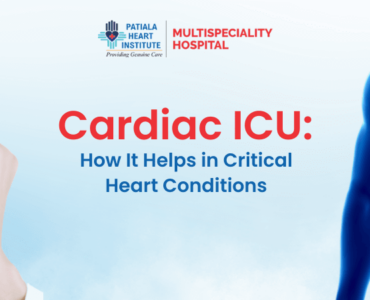Imagine a car engine that suddenly begins to sputter and shake. This unsettling scenario can be compared to what happens inside the body when someone experiences an irregular heartbeats. Just as an engine’s performance is vital to a vehicle’s function, the heart’s rhythm is essential for overall health and well-being. The heart’s ability to pump blood efficiently relies on a steady, rhythmic beat. When this rhythm is disrupted, it can lead to various health issues, including dizziness, shortness of breath, and even more severe complications.
An irregular heartbeat, medically known as arrhythmia, occurs when the heart beats too quickly, slowly, or erratically. Understanding the causes and symptoms of irregular heartbeats is essential for identifying the underlying health issues and managing them effectively. This blog will explore the causes of irregular heartbeats, the common irregular heartbeat symptoms, and how they can impact your overall health.
What is an Irregular Heartbeat?
An irregular heartbeat causes disruption in the heart’s normal rhythm. Usually, the heart beats in a regular rhythm, guided by electrical impulses that travel through the heart. When these impulses are disrupted, it can lead to an irregular heart rate. This irregularity can manifest in several ways, including:
- Bradycardia: Abnormally slow heart rate.
- Tachycardia: Abnormally fast heart rate.
- Arrhythmia: Irregular or erratic heartbeat.
Each type of irregular heartbeat has its own set of causes and symptoms, and understanding these can help in diagnosing and treating the condition effectively.
Common Causes of Irregular Heartbeats
Heart Disease:
One of the most common causes of irregular heartbeat is heart disease. Conditions such as coronary artery disease, heart valve problems, and heart failure can disrupt the heart’s normal rhythm. Damage to the heart’s electrical system can lead to various types of arrhythmias.
High Blood Pressure:
Chronic high blood pressure can cause the heart to work harder than usual, leading to structural changes in the heart that can result in an irregular heartbeat. Over time, these changes can disrupt the heart’s electrical signals.
Electrolyte Imbalances:
Electrolytes, such as potassium, sodium, and calcium, play a crucial role in maintaining the heart’s rhythm. Imbalances in these electrolytes can lead to arrhythmias. Conditions like dehydration, kidney disease, and certain medications can cause these imbalances.
Thyroid Disorders:
Both hyperthyroidism (overactive thyroid) and hypothyroidism (underactive thyroid) can affect the heart’s rhythm. The thyroid hormones influence the heart’s electrical system, and imbalances can lead to irregular heartbeat symptoms.
Lifestyle Factors:
Smoking, excessive alcohol consumption, and high caffeine intake can also contribute to irregular heartbeats. These factors can affect the heart’s electrical signals and lead to arrhythmias.
Stress and Anxiety:
Emotional stress and anxiety can trigger irregular heartbeats. The body’s stress response can lead to hormonal changes that affect the heart’s rhythm.
Medications:
Certain medications, including those for high blood pressure, depression, and asthma, can cause side effects that affect the heart’s rhythm. It’s essential to monitor these effects and consult with a healthcare provider if they occur.
Genetic Factors:
Some individuals may have a genetic predisposition to arrhythmias. Inherited conditions, such as prolonged QT or Brugada syndrome, can cause irregular heartbeats.
Recognizing the Symptoms of Irregular Heartbeats
Identifying the signs of irregular heartbeat is crucial for seeking timely medical attention. Common irregular heartbeat symptoms include:
- Palpitations: A sensation of a rapid, fluttering, or pounding heart.
- Dizziness or Lightheadedness: Feeling faint or unsteady can occur with irregular heartbeats.
- Shortness of Breath: Difficulty breathing or feeling breathless, especially during physical activity.
- Chest Pain: Discomfort or pain in the chest can be a sign of a severe arrhythmia.
- Fatigue: Unusual tiredness or weakness, even with minimal exertion.
If you experience any of these symptoms, it is essential to consult a cardiologist to determine the underlying cause and receive appropriate treatment.
Risk Factors for Irregular Heartbeats
Several factors can increase the risk of developing an irregular heartbeat. Understanding these risk factors can help in preventive measures and early intervention.
Age:
The risk of arrhythmias increases with age. The heart’s electrical system may become less efficient as it ages, leading to irregular rhythms.
Family History:
A family history of heart disease or arrhythmias can increase the risk of developing similar conditions. Genetic factors can play a role in the development of arrhythmias.
Pre-existing Health Conditions:
Conditions such as diabetes, high blood pressure, and heart disease can increase the risk of arrhythmias. Effectively managing these conditions can reduce the risk.
Lifestyle Choices:
Poor lifestyle choices, including smoking, excessive alcohol consumption, and a sedentary lifestyle, can contribute to irregular heartbeats. Adopting a healthy lifestyle can help mitigate these risks.
Previous Heart Surgery or Procedures:
Individuals who have undergone heart surgery or specific procedures may be at a higher risk for arrhythmias. It is important to monitor heart health following such interventions.
Other Medical Conditions:
Conditions such as sleep apnea, chronic lung disease, and electrolyte imbalance can also increase the risk of developing arrhythmias.
Diagnosis and Treatment
Diagnosing an irregular heartbeat involves a combination of medical history, physical examination, and diagnostic tests. These tests may include:
- Electrocardiogram (ECG): Measures the heart’s electrical activity to detect irregular rhythms.
- Holter Monitor: A portable ECG device is worn for 24-48 hours to monitor heart rhythms over time.
- Event Monitor: Similar to a Holter monitor but used for extended periods to capture intermittent arrhythmias.
- Echocardiogram: An ultrasound of the heart to assess its structure and function.
Treatment for irregular heartbeats depends on the underlying cause and severity of the condition. Options may include:
- Medications: Antiarrhythmic drugs to control heart rate and rhythm.
- Lifestyle Changes: Diet, exercise, and stress management modifications to improve heart health.
- Cardioversion: A procedure to restore a normal heart rhythm using electrical shocks.
- Catheter Ablation: A procedure to destroy the abnormal heart tissue causing the arrhythmia.
- Pacemaker or Implantable Cardioverter-Defibrillator (ICD): Devices implanted to regulate heart rhythm or deliver shocks if needed.
When to See a Heart Doctor
If you are experiencing the symptoms of irregular heartbeats, it is essential to consult a healthcare provider for a thorough evaluation and specialized care. A heart doctor in Patiala can provide comprehensive assessments and personalized treatment plans for managing arrhythmias and other heart-related conditions.
Conclusion
An irregular heartbeat can be alarming, but understanding the causes and risk factors can help manage and treat this condition effectively. Individuals can improve their heart health and overall well-being by recognizing the symptoms of irregular heartbeats and seeking timely medical care from a cardiologist specialist.
If you are experiencing symptoms or have concerns about your heart health, don’t hesitate to seek professional help. Heart health is essential, and timely intervention can make a significant difference.
Contact a cardiologist specialist at Patiala Heart Institute & Multispecialty Hospital in Patiala today to ensure you receive the best heart care.







